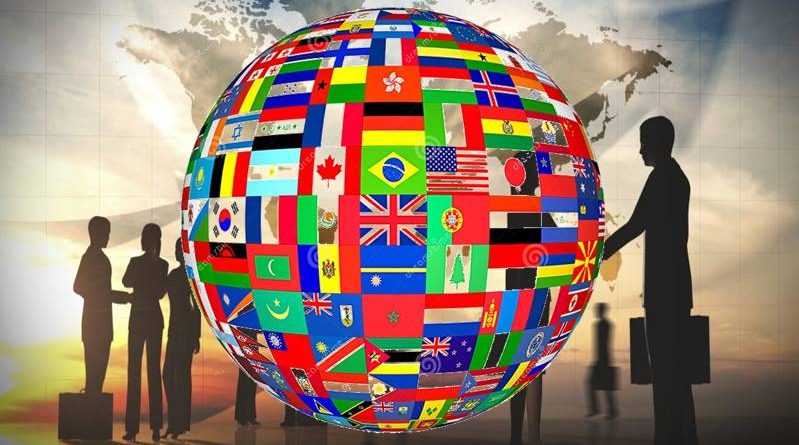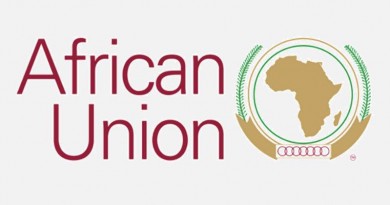Nigeria and the Global Fund launch $900 million grants to fight HIV, TB and Malaria
Nigeria and the Global Fund to Fight AIDS, Tuberculosis and Malaria have launched three new grants to strengthen the fight against HIV, TB and malaria and build resilient and sustainable systems for health.
The new grants, covering the 2021-2023 implementation period are worth $900 million, an increase of more than $200 million from the previous allocation for 2018-2020. The grants were launched today in a virtual ceremony attended by His Excellency Muhammadu Buhari, the President of Federal Republic of Nigeria, Peter Sands, Executive Director of the Global Fund, Dr. Lucica Ditiu, Executive Director of Stop TB Partnership, Shannon Hader, Deputy Executive Director of UNAIDS, Kathleen FitzGibbon, Deputy Chief of Mission for the U.S. Embassy in Nigeria, and Dr. Osagie Ehanire, Minister of Health of Nigeria.
The grants will be implemented by the National Agency for the Control of AIDS, Family Health International 360, the National Tuberculosis and Leprosy Control Programme, the Lagos State Ministry of Health, the Institute of Human Virology, the National Malaria Elimination Programme and Catholic Relief Services. To date, the Global Fund partnership has invested more than $2.6 billion in Nigeria with support from donors and technical partners. The investments have helped expand health services across the country, supporting more than 1.5 million people with lifesaving HIV treatment and treating 138,500 people with TB in 2020 alone. Between 2017 and 2020, the investments also contributed to the distribution of more than 100 million mosquito nets to protect people from malaria, while building resilient and sustainable systems for health.
These investments are achieving results. Lifesaving HIV treatment coverage increased from 57% in 2017 to over 80% by 2020. TB case notifications increased significantly in 2019 and 2020 by 13% and 30%, respectively. For malaria, deaths from the disease decreased 32% between 2014 and 2019.
Nigeria has some of the world’s highest burdens of HIV, TB and malaria. With approximately 61 million estimated malaria cases recorded every year, Nigeria has the biggest malaria burden globally. With 1.8 million people living with HIV, Nigeria has the second-highest number of people living with HIV in sub-Saharan Africa and it has the highest number of TB cases in Africa, at 440,000 cases recorded every year.
“My administration is committed to increasing domestic financing to ensure universal health coverage for all Nigerians. In this regard, we have continued to fund the Basic Health Care Provision Fund through statutory deductions from our annual budget. We are also scaling up coverage of the social health insurance programs across the country. I am pleased to note that we are on track to fulfil our co-financing commitments to the Global Fund for this new funding cycle. We will continue to place human capital development at the center of our development agenda,” said Muhammadu Buhari, President of the Federal Republic of Nigeria.
“These new investments will accelerate progress in the fight against HIV, TB and malaria in Nigeria and in the effort to build strong systems for health,” said Peter Sands, Executive Director of the Global Fund. “Our success in the fight against these diseases in Nigeria will have a pivotal impact on the progress we make in ending these diseases as public health threats across the world. We must all work together to maximize the impact we achieve here.”
“For us, Nigeria is a country close to our hearts and brains, not only because Nigeria is one of the high TB burden countries, but because we believe Nigeria can be the lead country in the African region on TB response. The high-level political leadership, vision, ambition, hard work of the National TB Programme, partners, communities and civil society and this Global Fund grant are the key ingredients towards reaching the United Nations High-Level Meeting targets on TB by end of 2022. We are heavily encouraged by the fact that Nigeria is among the very few high TB burden countries at global level in which the number of people diagnosed and treated for TB during the COVID-19 pandemic did not decrease but actually slightly increased. Therefore, we are in standby to further support the country and the team of Ministry of Health to find and treat all people with TB and end this airborne disease by 2030,” said Dr. Lucica Ditiu, Executive Director of Stop TB Partnership.
“Nigeria has made significant progress in response to HIV/AIDS, demonstrating some critical accelerations even during these difficult times. For example, Nigeria recorded its largest growth in HIV treatment numbers in the year of the COVID-19 pandemic, initiating close to 300,000 people living with HIV on treatment in 2020. That shows true leadership and commitment, both at national and state levels. These new grants will be critical in further accelerating the delivery of treatment and prevention services to people who need them most: children living with HIV, young women and girls and other groups of people disproportionately affected by HIV such as gay men and sex workers,” said Shannon Hader, Deputy Executive Director of UNAIDS.
“Control of the HIV/AIDS epidemic is within reach thanks to the joint efforts of the Ministry of Health, National and State AIDS Control Agencies, state governors, the Global Fund and the President’s Emergency Program for AIDS Relief (PEFPAR). We expect the ongoing national alignment of resources among these key players to expedite epidemic control and create a strong foundation for sustaining patients on treatment,” said Kathleen FitzGibbon, Deputy Chief of Mission for the U.S. Embassy in Nigeria.
Among other goals, the new grant will help Nigeria accelerate progress toward the UNAIDS 90-90-90 HIV treatment targets: 90% of HIV-positive people who know their status; 90% of HIV-positive people who know their status on treatment; 90% of people on antiretroviral therapy with suppressed viral load. The new funds will also aim to expand detection of TB cases and TB treatment coverage. Additionally, the funds will aim to increase the coverage of mosquito nets in Nigeria, scale up seasonal malaria chemoprevention for children under 5 in the Sahel states and expand access to malaria services in hard-to-reach communities across Nigeria.
These grants are critically important as Nigeria responds to the COVID-19 pandemic while protecting gains made and accelerating progress against HIV, TB and malaria.




